Photographs: Divya Nair/Rediff.com Divya Nair
At a time when young professionals are busy running after quick money and complaining how overworked and underpaid they are, 28-year-old Dr Nithya Iyer, a post graduate medical student who topped the Mumbai division this year exemplifies an inspiring tale of perseverance and social responsibility -- two values, she's learned through her career journey.
Ten years ago, 18-year-old Nithya Iyer who'd topped her school and scored 89 per cent in her Class 12 board examination had felt disappointed because her name did not appear in the Mumbai merit list for an undergraduate medical seat.
An academically bright student who always topped her class through school and junior college, Iyer had managed to score 181 out of 200 in her Common Entrance Exam in 2003.
The loss of 19 marks cost her dear and she had to make peace with a government college seat in Yavatmal. That, she says was the "first setback" in her academic career.
With a heavy heart and a strong will to succeed, she travelled to Shri Vasantrao Naik Government Medical College, Yavatmal where she studied medicine for six years more than 700 kilometres away from her home in Mumbai.
She returned to Mumbai to pursue her post graduation specialising in obstetrics from the Lokmanya Tilak Municipal General Hospital, Mumbai.
Over the years, she's treated hundreds of patients, mostly women, in the most challenging of circumstances.
Today, after having topped the Mumbai division in her post-graduation, Iyer feels her "hard work has finally borne fruit."
Looking back at the events that turned her life and career, she says, "everything happened for a good reason".
What doubles the joy for Dr Iyer, an aspiring obstetrician is that she's the first doctor in her family -- her father is a bank officer and mother, a part-time teacher.
The 28-year-old is currently working as a supervising doctor and obstetrician at a government hospital in Jogeshwari, a suburb in western Mumbai.
"I wish my grandfather was alive today. He would have been the happiest. This was his dream," she reacts as we sit in the common dining area of the Brihanmumbai Municipal Corporation Hospital in Jogeshwari West at 7 pm on a Friday evening.
Iyer had requested me to drop in two hours late, because she'd "badly needed a power nap after working for almost 28 hours at a stretch."
Over the next two hours, Dr Iyer talked to me about her growing up years, what she learned while working in adverse conditions treating the ill and poor for 30 hours at a stretch with no sleep to begin with.
She also shared details of some of the historic medical cases she's handled in the last five years -- she recently performed a forensic test on a horrifying sexual assault on a 12-year-old; has retrieved a pre-mature female foetus discarded in a toilet and helped a woman deliver a baby with the least medical aid during her internship days in Ralegan, a village in Vidarbha region of Maharashtra.
Read on to find out more about this young achiever's inspiring medical experiences and her honest advice to young aspirants who are likely to consider the profession……
Please click NEXT to continue reading...
'I learned to survive without complaining'
Image: Dr Nithya Iyer (third nd from left) flanked by her parents Ramaswamy and Malthi and mentor Dr Ganesh Shinde, professor and unit head, Sion HospitalDivya Nair
Having scored 94 per cent in Physics-Chemistry-Biology combined in her Class 12, Iyer was slightly disappointed with her poor score in the Common Entrance Examination.
"When I saw my CET score, I immediately realised I wasn't going to get a seat in a Mumbai college," recalls Iyer who got selected for an MBBS seat at Shri Vasantrao Naik Government Medical College, Yavatmal.
Iyer's father, Ramaswamy wasn't too keen to let his daughter stay away from the family for six years.
"He was very heartbroken, particularly because he had learned that government medical colleges and hostels come with their own set of problems -- poor hygiene, not-so-exciting food options and bad living conditions."
Ramaswamy Iyer suggested that she apply for an education loan and take admission in a private medical college, but Dr Iyer wasn't convinced.
"I come from a middle class family. I couldn't have afforded a private college. It would have meant shelling out at least Rs 25 lakhs over a period of 5 years as tuition and hostel fees. The fee at the government college was only Rs 18,000 per year. I chose the latter."
Although Iyer had managed to convince her dad, deep within she was equally scared how she'd manage in a new place.
"Once I reached there, I realised that I had to fend for myself and learn to survive without complaining. Since I was never picky about food, I never complained. There was some harmless ragging by seniors, but I was sociable, and made friends easily. When it came to hygiene and accommodation-related problems, I eventually got used to it," she recollects.
'Most women in Ralegan did not know what contraception was'
Image: Dr Iyer attends a patient in the maternity ward at the government hospital in JogeshwariGetting through the most challenging years of her medical career
Iyer's medical internship involved working as a junior doctor at a government clinic at Ralegaon village in Yavatmal between April 2009 and June 2009.
Those three months, she says, were "the most challenging years" of her medical career.
Describing the adverse climatic conditions there, Iyer says, "It was summer and the temperatures soared above 40 degrees. I had to travel about 45 minutes in a local bus most of the time sitting on the heated engine cover next to the bus driver because there were few buses and the ones that plied were always overcrowded."
Every day, before she stepped out to work, she'd place an onion on her head to absorb the heat, then cover her face with a dupatta and wore gloves and socks as well.
During the three months she worked there, Iyer empathised with the problems of the rural folk and became one among them.
Cotton farming is the main occupation of people at Ralegaon, a village in Vidharbha region of Maharashtra. But due to untimely rains, the crops would perish which is why 80 per cent of families who lived in the village were financially insecure.
"Suicides were common. So were snakebites. Almost every day, a jeep would land at the clinic with a bunch of people who had sticks in their hand. Someone would have indulged in a fight and his head, hands and legs bleeding," Iyer explains of the cases the clinic would encounter on a day-to-day basis.
"One farmer's hair had come off the scalp, one had a serious injury closed to the eye," adds Iyer who has fixed quite a few injuries during her three-month internship period.
Since there was no operation room or ICU at the Ralegan clinic, the aspiring doctors could only perform minor sutures; surgeries were recommended to the Yavatmal government hospital.
Iyer was posted into the women ward where she encountered women patients with teenage pregnancies, cysts in the uterus and ovaries.
"Most of them did not know what contraception was," she shares.
"Others did not know whom to share these problems with. One of them had come to the clinic complaining of bleeding and extreme stomach pain. Medical tests revealed that she had a cyst, which had grown to match the size of her uterus. Fortunately, this lady in question was old enough that we could afford removing her uterus."
After the surgery, when Iyer spoke to her, she realised that although the warning signs had begun quite early, the lady was ignorant about the gravity of the condition and did not know whom to confide in.
This explanation, she says was consistent among most women who consulted her.
'Just as people lift you when they are happy, they also blame and attack you when you fail'
Image: Dr Nithya Iyer inspects a pregnant lady at the government hospital'They named their child after me'
Iyer calls herself lucky to have been trained in a rural clinic.
At the Sion Hospital, where she was a consultant, she would attend as many as 500 patients a day.
"During the time I was working there, I have gone without sleep for 30 hours at a stretch; not had a bath for at least three days, picked up biscuits while I was rushing for an emergency and collapsed on the bed because my body could no longer stretch it," she recalls of her rigorous schedules.
While she agrees that the physical conditions and facilities at government-run clinics are dismal, she also urges us to look at the positives.
"When you study in a government institution, you are paying a frugal amount of money as fee, as compared to a private college, where you'll be spending nothing less than half a crore to complete your degree. It is only fair to expect so much from you in return," she reasons.
Among the cases that's closer to her heart is consulting a couple that did not have a baby for almost ten years. Iyer supervised the case of in vitro fertilisation and led it to success.
"When the baby girl was delivered hale and hearty, the mother was so happy that she named her child Nithya (after me). The kid is three years now, but she still calls me on the phone and makes me listen to her voice," Iyer shares.
Speaking of her worse experiences, she says, "The reverse of happiness is sorrow or anguish. Just as people lift you when they are happy, they also blame and attack you when you fail. They think we are God. Once they get the patient to the hospital, they think their job is done and it is left to the doctors to make it work for them."
At Sion Hospital, Dr Iyer was in charge of the Redressal Cell in the Maternity section.
Whenever someone lost a child or mother in an operation, it was her job to break the news to the family.
"Very few people understood and took control of the situation, most others would get angry and use foul language. That's when I ask the security personnel to intervene. Some people have even threatened to file police cases against the hospital and me. We show them the papers they have signed before the surgery was performed -- it clearly states that the hospital and staff will ensure the best resources are put to task, but at the same time does not promise a positive outcome for any surgery. Some people still hold it against us. It's a personal and emotional thing. We can't blame them."
'One has to sacrifice a lot to survive in this profession'
Image: Dr Iyer does a routine check of one of her patients'To be a doctor, be prepared to sacrifice a lot'
As of 2013, there are seven lakh students from Maharashtra appearing for the common entrance test for 2000 MBBS seats. This is inclusive of the 400 seats government has proposed to add to the existing MBBS seats for the current year.
At 350 students competing for one MBBS seat, Iyer feels the competition is still way too high to even aspire for.
Definitely the number of seats has to be increased or there has to be more government funded medical colleges, she says.
The situation worsens for postgraduate aspirants. "There are fewer options for specialisations in India. More so, if a certain college doesn't have enough takers for a specialisation you choose, or you are forced to choose a different specialisation that is available or you have to find another college that offers the specialisation."
Iyer also doesn't agree with the mandatory rural internship in a distant village, where there are limited facilities and resources.
Offering a solution, Iyer says that starting more medical colleges in rural areas might encourage children from rural India to pursue the vocation, if not as doctors, as paramedics.
In her opinion, there is a serious dearth of experienced doctors and well-trained medical professionals across the country.
"If the government is not willing to address these issues, they should not force medical aspirants to continue their studies in India or stop them from working abroad," she says.
Unlike her peers who aspire to settle abroad after completing their post graduation, Iyer wants to continue her practice in India.
"After my post graduation, I'd like to practice at a private hospital in India under an expert just so that I would be exposed to the latest technology and medical care. After gaining considerable experience, I might consider setting up a clinic of my own," she says.
Advice to young aspirants
When I asked her if she'd like to recommend medicine as a career, Iyer was kind enough to warn me of the pros and cons that come with it.
"I don't know for sure how many of them would really like to slog and wait for 10 years after completing Class 12 to launch their careers. If you were to choose medicine after Class 12, by the time you are entering your fifth year, your pals in engineering, commerce and arts have already been placed in good companies. And if you've chosen a government college, you'll have almost no social or family life. Combine this with sleepless nights, competition, exams and practical lectures, that is enough to scare most of them."
Iyer who recently got married to her senior colleague, also a doctor, says "one has to sacrifice a lot to survive in this profession."
She calls herself lucky to have found support and encouragement from her husband and parents-in-law.
"I don't have a normal family life. It's been almost a year since I got married, but we don't get to spend time as a couple. Like my parents, my in-laws have also accepted the fact that mine is not a 9-to-5 career, that I can't attend all family events and that I wont be home every day after work -- at least for the next one year or more."
Sharing lessons from her 10-year long medical journey, Iyer appealed aspirants to be mindful of their career choices.
"Choose a career only if it interests you, because each profession comes with its share of good, bad and ugly things. If you choose a profession like medicine or law, which takes a relatively longer time to complete as compared to engineering, arts or commerce, you have to be patient enough to reap the results of your hard work."
According to her, no matter how many times you've succeeded in the past, you are bound to fail at least once. She believes in analysing what went wrong and treating failures as a challenge.
In her parting advice to future professionals, she says: "If you are in a competitive field, be watchful of the people around you. With success, also comes jealousy and responsibility."

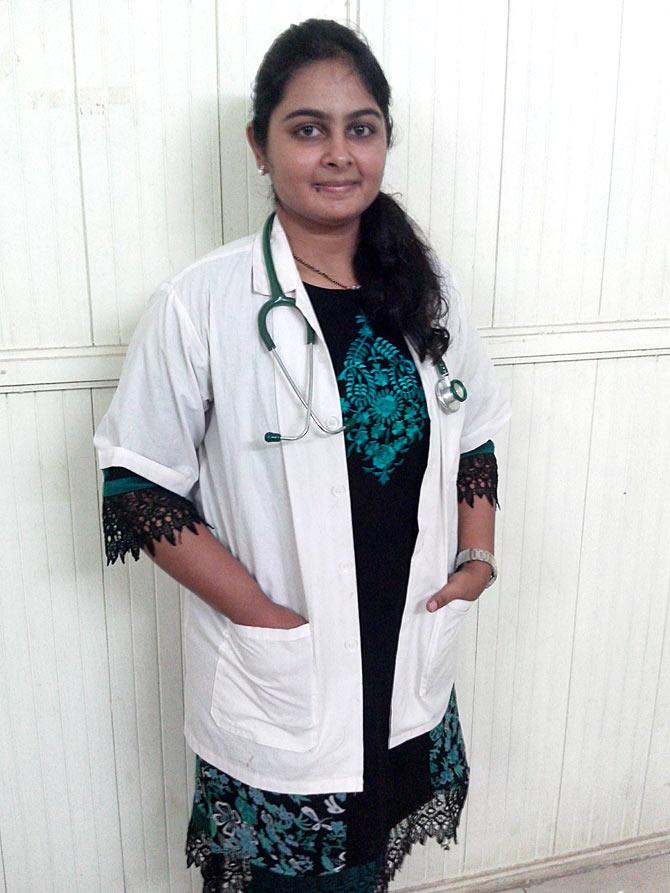
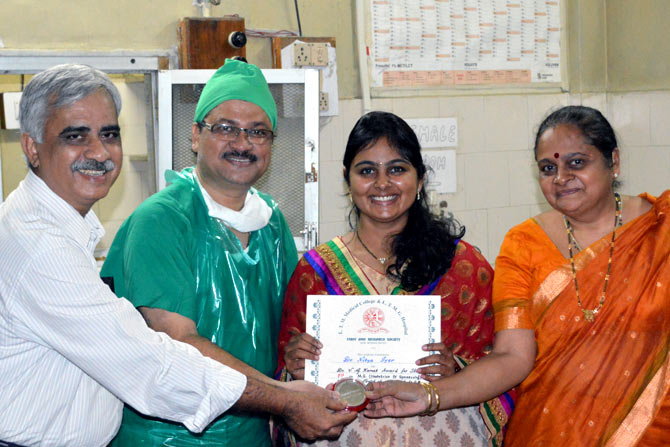
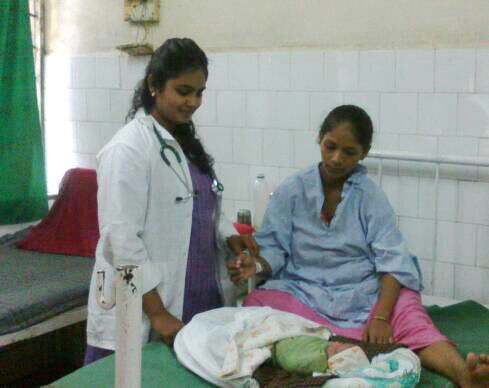
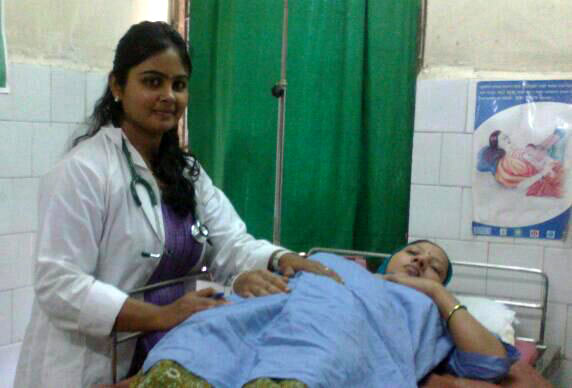
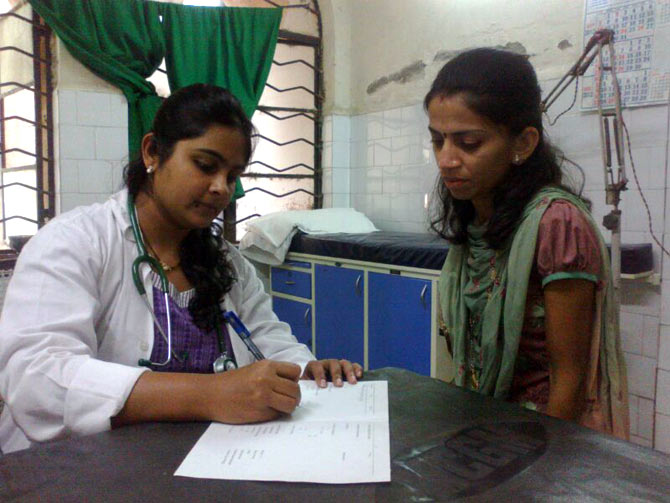
Comment
article